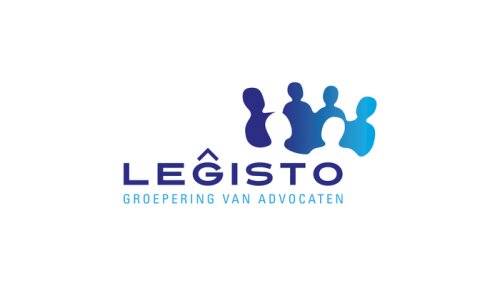Best Faith-Based Law Lawyers in Belgium
Share your needs with us, get contacted by law firms.
Free. Takes 2 min.
Or refine your search by selecting a city:
List of the best lawyers in Belgium
About Faith-Based Law in Belgium
Faith-Based Law in Belgium pertains to the integration and interaction of various religious beliefs and practices within the Belgian legal and social framework. Belgium is a secular state, but it recognizes the importance of religious diversity and freedom of religion. This legal field involves ensuring that religious practices and rights are respected and that they coexist harmoniously with national laws. Faith-Based Law can cover aspects such as religious marriage recognition, religious dietary laws, observance of religious holidays, and more.
Why You May Need a Lawyer
Individuals or organizations might require legal assistance in Faith-Based Law for several reasons. These include resolving disputes involving religious discrimination, ensuring compliance with religious practices in workplaces, handling issues related to religious education in schools, or disputes over religious property. Lawyers specializing in Faith-Based Law can also be critical in navigating the complexities of immigration and asylum cases that involve religious persecution.
Local Laws Overview
Belgian law respects the freedom of religion as enshrined in the Constitution. However, the application of religious law must align with public order and social customs. For instance, religious marriages must be preceded by a civil marriage to be legally recognized. Laws concerning education have provisions for religious instruction, but they must respect the secular framework of Belgium's education system. The observance of religious practices in workplaces is protected, but must balance with operational requirements.
Frequently Asked Questions
What is the legal status of religious marriages in Belgium?
In Belgium, only civil marriages are legally recognized. Religious ceremonies can occur, but they have no legal value unless preceded by a civil ceremony.
How are religious holidays recognized in Belgium?
Belgium provides for leave on recognized religious holidays, though this may depend on employment contracts and must align with national employment law ensuring fairness across different faiths.
Can my child receive religious education in a public school?
Yes, public schools in Belgium offer religious education classes organized by recognized religious communities, but attendance is optional and subject to parental consent.
What legal rights protect my freedom of religion in Belgium?
The Belgian Constitution and various international treaties to which Belgium is a party protect freedom of religion, ensuring individuals can practice their faith without discrimination.
Are there any restrictions on religious symbols in public spaces?
There are no national restrictions on religious symbols; however, local regulations may apply, particularly regarding the wearing of religious garments in public institutions.
How does Belgium handle cases of religious discrimination?
Belgian law prohibits discrimination based on religion in several areas, including employment, education, and services. Victims can seek redress through the courts or the Centre for Equal Opportunities.
Are dietary laws recognized and respected in Belgium?
Food labeling accommodates certain religious dietary requirements, and in multicultural cities, options for kosher, halal, and other religious dietary needs are widely available.
How are faith-based asylum claims handled?
Faith-based claims for asylum must demonstrate a well-founded fear of persecution due to religious beliefs. The Belgian Commissioner General for Refugees and Stateless Persons evaluates these claims.
Is polygamy recognized under Belgian law?
No, polygamy is not recognized under Belgian civil law, and only monogamous marriages are legally valid, regardless of religious customs.
What should I do if I face workplace discrimination for my religious beliefs?
Employees can report discrimination to their employer, seek assistance from their union, or file a complaint with the Centre for Equal Opportunities.
Additional Resources
Several resources can provide further assistance in Faith-Based Law in Belgium. The Centre for Equal Opportunities offers valuable support and information. Religious institutions often offer guidance for their members. Additionally, local legal aid services and specialized law firms can provide legal advice and representation.
Next Steps
If you require legal assistance in Faith-Based Law, it is advisable to consult with a lawyer specializing in this area. Look for legal professionals with experience in handling cases involving religious issues. You can also contact local religious organizations for referrals to trusted legal experts. Preparing documentation and understanding the specifics of your situation will aid a legal advisor in offering the best guidance.
Lawzana helps you find the best lawyers and law firms in Belgium through a curated and pre-screened list of qualified legal professionals. Our platform offers rankings and detailed profiles of attorneys and law firms, allowing you to compare based on practice areas, including Faith-Based Law, experience, and client feedback.
Each profile includes a description of the firm's areas of practice, client reviews, team members and partners, year of establishment, spoken languages, office locations, contact information, social media presence, and any published articles or resources. Most firms on our platform speak English and are experienced in both local and international legal matters.
Get a quote from top-rated law firms in Belgium — quickly, securely, and without unnecessary hassle.
Disclaimer:
The information provided on this page is for general informational purposes only and does not constitute legal advice. While we strive to ensure the accuracy and relevance of the content, legal information may change over time, and interpretations of the law can vary. You should always consult with a qualified legal professional for advice specific to your situation.
We disclaim all liability for actions taken or not taken based on the content of this page. If you believe any information is incorrect or outdated, please contact us, and we will review and update it where appropriate.
Browse faith-based law law firms by city in Belgium
Refine your search by selecting a city.













